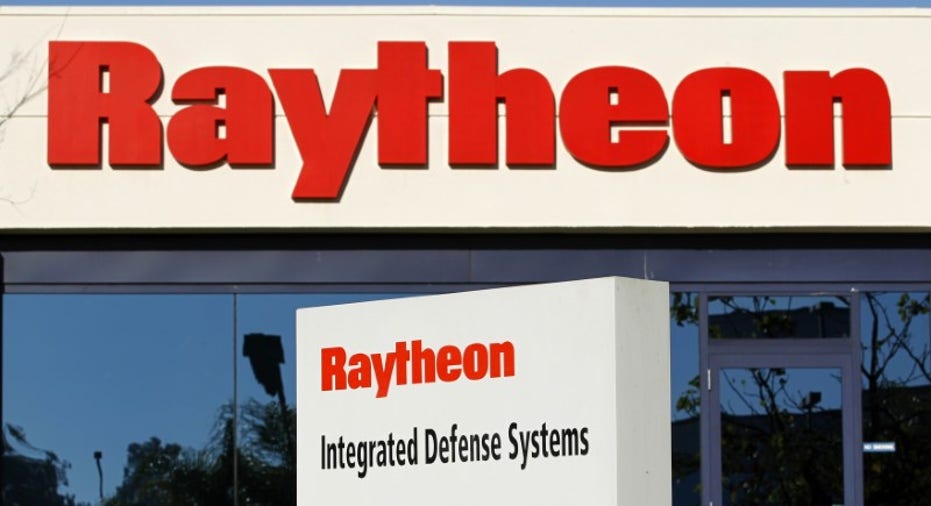Raytheon's quarterly revenue rises 8%

Jan 25 (Reuters) - Tomahawk missile maker Raytheon Co reported an 8 percent increase in fourth-quarter revenue on Thursday, benefiting from demand for more weapons from United States and its allies.
A lower effective tax rate in 2018 helped the U.S. defense contractor forecast full-year earnings per share from continuing operations in the range of $9.55 to $9.75, much higher than the average analyst estimate of $8.87. The weapons maker said its 2018 net sales would be in the range of $26.4 billion-$26.9 billion, beating the Wall Street expectation of $26.63 billion, according to Thomson Reuters I/B/E/S.
The company also said it expects 2018 operating cash flow from continuing operations to be between $3.6 billion and $4.0 billion, compared with $2.7 billion in 2017.
Raytheon and other U.S. weapons makers are expected to benefit in the coming year from an increase in overall defense spending under President Donald Trump's administration.
Sales at Raytheon's missile systems unit, its biggest by revenue, rose 15.2 percent to about $2.19 billion in the quarter ended Dec. 31, helped by higher sales of medium-range air-to-air missiles, Paveway laser-guided bombs and SM-3 anti-ballistic missiles.
Sales in Raytheon's space and airborne systems business, its second-biggest, rose 4.4 percent to $1.67 billion, helped by higher sales of airborne radars.
The unit makes electronic warfare systems for tactical aircraft, helicopters and ships as well as tracking and navigation sensors used on airborne platforms.
Raytheon's overall sales rose to $6.78 billion in the quarter, from $6.28 billion, a year earlier, narrowly missing the Street estimate of $6.81 billion.
However, income from continuing operations attributable to Raytheon fell to $393 million, or $1.35 per share, from $555 million, or $1.87 per share, a year earlier.
Raytheon said its fourth-quarter profit included a provision of $171 million for tax-related expense and a $1 billion pre-tax discretionary pension plan contribution, which was not included in the company's prior forecast. (Reporting by Mike Stone in Washington and Ankit Ajmera in Bengaluru; Editing by Arun Koyyur)



















